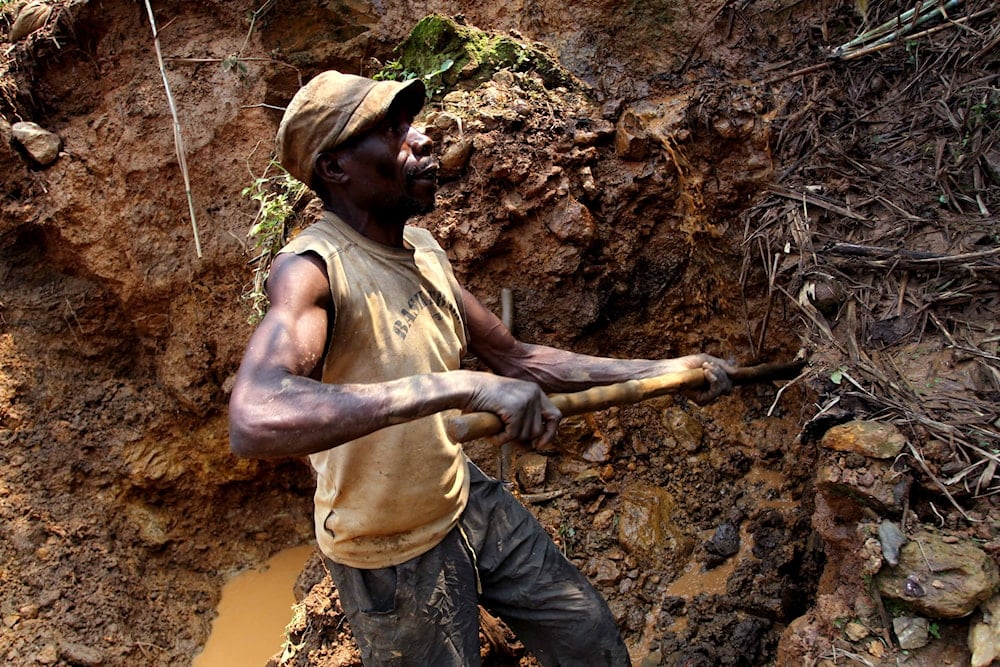Congo eyes US minerals deal by end of June
The Democratic Republic of Congo is negotiating a US-backed minerals deal and a potential peace agreement with Rwanda to end the M23 rebellion and reduce reliance on China for mineral exports.
-

One of the few remaining miners digs out soil which will later be filtered for traces of cassiterite, the major ore of tin, at Nyabibwe mine, in eastern Congo, on August 17, 2012. (AP)
Officials in the Democratic Republic of Congo are optimistic that a deal with the United States could be finalized as early as next month. The proposed agreement includes substantial US investment in critical minerals and diplomatic support to end the Rwanda-backed M23 rebellion in eastern Congo, the Financial Times (FT) reported on Sunday.
According to Reuters, a peace arrangement under negotiation would allow Congolese minerals such as tungsten, tantalum, and tin, often cited by Kinshasa as being illegally exploited by Rwanda, to be exported legally to Rwanda for processing.
Congo's Minister of Mines, Kizito Pakabomba, stated that an agreement with Washington would help "diversify our partnerships," aiming to reduce the country’s current dependence on China for mineral exploitation.
The Democratic Republic of Congo holds some of the world’s largest reserves of critical minerals essential for global technology supply chains.
Kinshasa continues to accuse Kigali of backing the M23 rebel group and of smuggling tens of millions of dollars’ worth of minerals across the border monthly.
The plundering of these resources is seen as a major driver of the ongoing conflict in the east, which has escalated since January.
Yolande Makolo, a spokesperson for the Rwandan government, defended Kigali’s military posture, saying Rwanda’s defensive measures along the border will remain in place as long as threats and insecurity persist in the DRC.
Potential hurdles to finalizing agreements
While the talks are progressing, FT reported that substantial obstacles remain. Sources close to the negotiations indicated that a finalized deal, including US investment and a peace agreement with Rwanda, was possible by the end of June, though unresolved issues could delay progress.
Senior advisor to former US President Donald Trump on African affairs, Massad Boulos, said earlier this month that Washington is pushing for a comprehensive summer agreement combining peace efforts and Western mineral investment.
Last week, the United States negotiated with the DRC over the minerals agreement that could grant Washington access to critical resources in exchange for security support. However, human rights organizations warned that without formal protections for the country’s informal mining sector, such a deal could exacerbate child labor and unsafe working conditions in one of the world’s most resource-rich but vulnerable regions.
Nonprofits like the Fair Cobalt Alliance (FCA) and academic observers say the inflow of US investment, especially in industrial mining, will inevitably stimulate artisanal and small-scale mining (ASM), where labor is often informal, underregulated, and dangerous.
It is worth mentioning that the DRC holds vast reserves of cobalt and copper, key materials for electric vehicle batteries, renewable energy, and military technology. Despite the presence of major mining companies, a significant share of the country's cobalt and copper is mined artisanally, often with limited oversight and high human cost.

 3 Min Read
3 Min Read










